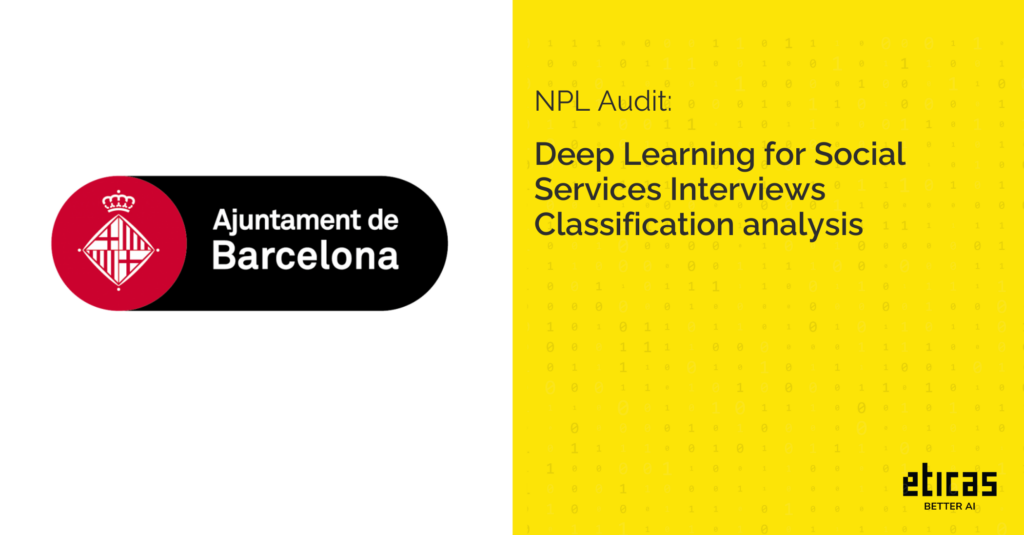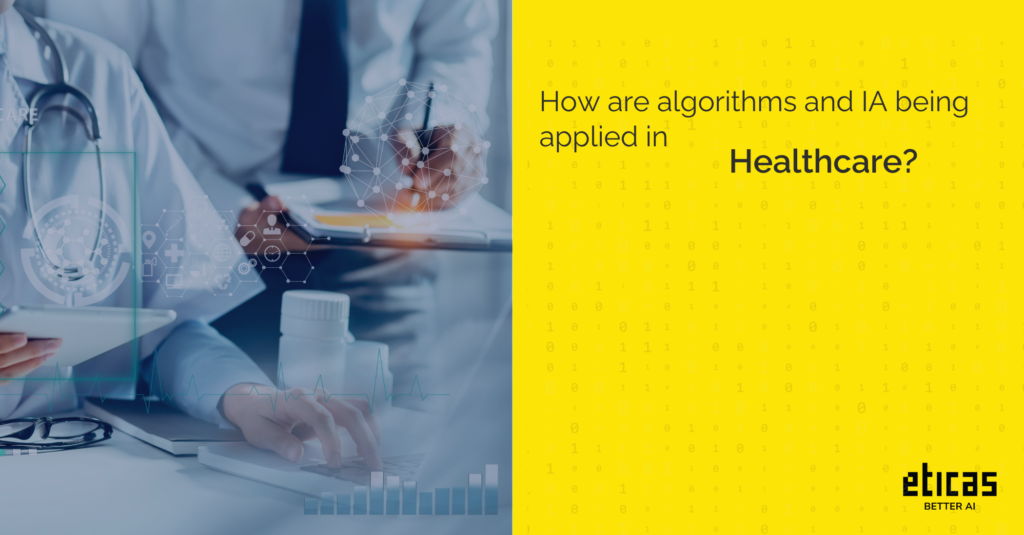Deep learning for social services for the Barcelona City Council

With the collaboration of Universidad Pompeu Fabra (Barcelona), Eticas carried out an audit of the natural language processing (NLP) system from the Social Services area from the Barcelona City Council.
How are algorithms and AI being applied in healthcare?

The application of artificial intelligence in healthcare field provides extensive applications that help to support the system and the development of medical solutions.
A deeper look into facial recognition
We humans are incredibly good at facial recognition: normally, we are able to tell whether we know someone by looking at their face for less than half a second, and we can recognize people’s faces even when we can’t remember other details about that person, like their name or their job.
Chinook: an algorithm to help migration officers in Canada decide who to let in
The Russian invasion of Ukraine, started on 24 February 2022, has provoked one of the single greatest refugee crisis of recent times. By 24 April 2022, there were more than 5.2 million refugees who had fled the war in Ukraine, according to data compiled by the UN High Commissioner for Refugees (UNHCR). Do you know how much a migration algorithm influences this?
European Commission must uphold privacy, security and free expression
In May, the European Commission proposed a new law: the CSA Regulation. If passed, this law would turn the internet into a space that is dangerous for everyone’s privacy, security and free expression. Today, 8 June, we join this initiative led by EDRi alongside other 73 organisations in calling instead for tailored, effective, rights-compliant and technically-feasible alternatives to tackle this grave issue through an Open Letter.
FemTech: My body, my data, their rules
Menstruation, despite having existed since the dawn of humanity and affecting half of the world’s population, remains largely unknown in many aspects. Paradoxically, however, for years, control over the menstrual cycle has been a lucrative source of income in different sectors.
Learning by Exposing BadData
Thanks to artificial intelligence, algorithms can be trained by and learn from data. But what an algorithm does depends a lot on how good the data is. Data could be corrupted, out of date, useless or illegal. In this way, bad data plays an important part of all kinds of decision-making processes and outcomes.
Is AI for or against LGBTQ+ community?
In 2011, an Android app had a test of twenty stereotyped questions through which parents could reportedly find out the sexual orientation of their children.
Location data is personal data, isn’t it?
A few days ago, the European privacy group NOYB (None of your business) filed an appeal against a decision of the Spanish Data Protection Authority (AEPD) regarding the phone provider Virgin Telco refusal to provide the location data it has stored about a customer after this person asked for it in December 2021. Now the case is in the hands of the Audiencia Nacional (Spain’s national court).
Why and how media curation by algorithm contributes
These days, many of us get informed about what’s going on in the world, in our countries and even around us in our towns by reading, watching or listening to online media: from online newspapers, to online video, to online radio and podcasts.
